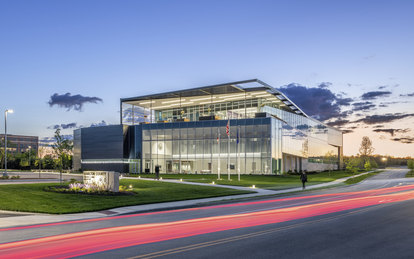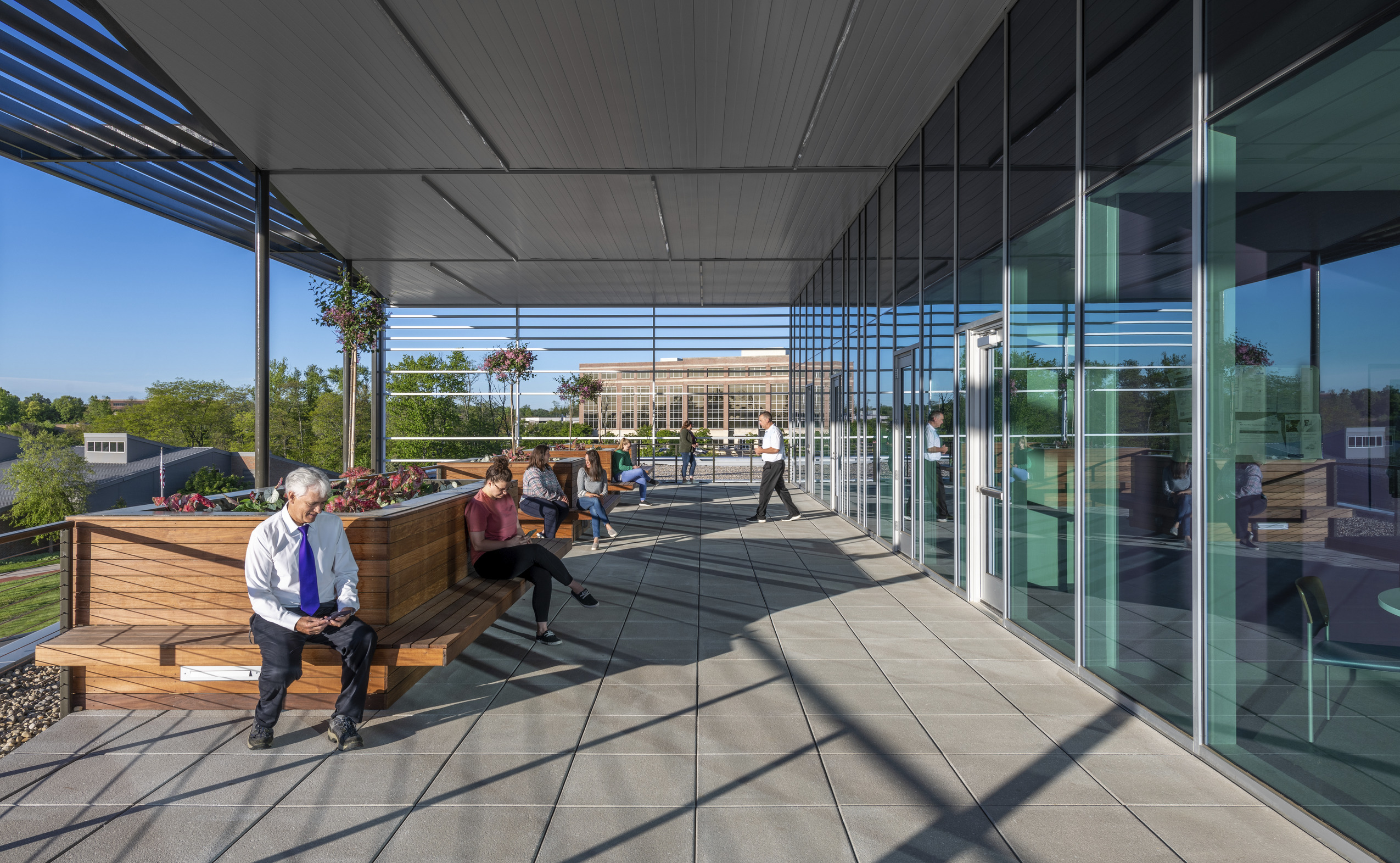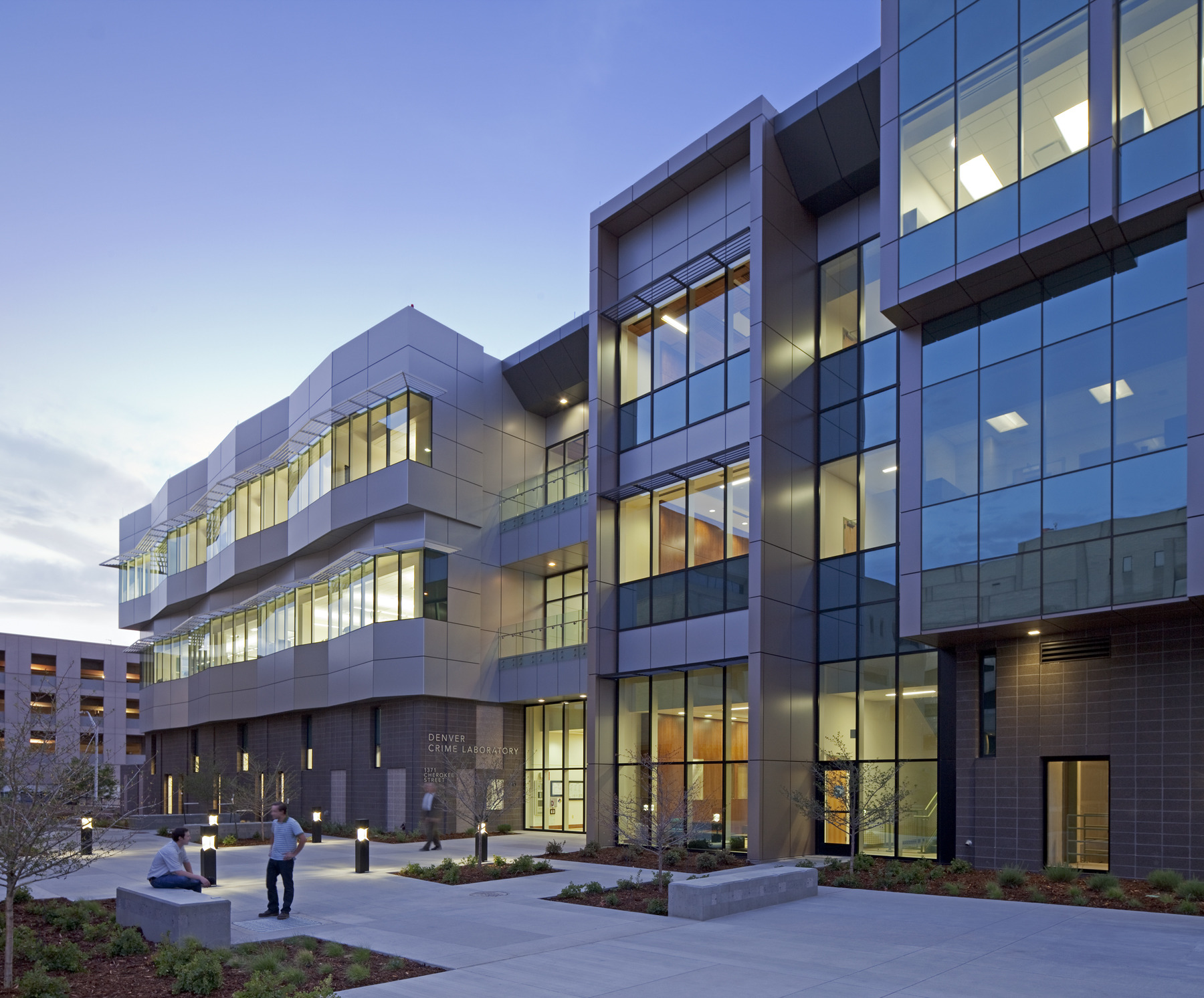Help Wanted – Competing for Talent in a Dynamic Workforce – Part One

Competing for talent in today’s changing workforce landscape is challenging across all industries, and forensics is no exception. SmithGroup’s Forensics team got curious and conducted a survey of individuals working in the forensics industry to understand more about what is driving attitudes about the vital role they serve. The survey insights elevated the dialogue around what brings people to forensics and why they stay in the field. The data provided opportunities to analyze how the design of forensic facilities can address employee well-being and brought to light what laboratory leadership must do to drive recruitment, engagement, satisfaction and retention of an engaged workforce.
Both Crime Labs and Medical Examiner/Coroner workspaces house teams with highly specific skill sets and overlapping wants and needs around those spaces. This is the first of a two-part series aiming to address the new mindset specific to crime labs that must be adopted by employee and employer alike to create a mutually rewarding work experience.
Shifting work expectations and the rise of a hybrid system
Our past experience has shown that forensic professionals are deeply passionate about what they do, and the Forensic Workforce Survey only reinforced that anecdotal understanding. Forensic science professionals strongly believe that their work is impacting people in a positive way, every day. Survey questions around motivation elicited answers such as, “I know that what I do everyday is helping someone,” and “Knowing what I do impacts the lives of many people in a positive way, both in my work and the city I work in.”
Workers in this field believe in providing a high level of service, both internally within their organizations and externally among a client base that is large and diverse, including police departments, other investigative organizations and the public and the communities that they all ultimately serve.
The combination of an aging and rapidly retiring workforce, a shortage of younger people drawn to and trained in forensic science, and a worldwide pandemic that forced changes in where, how and why people work, has created new expectations around what drives a genuine sense of fulfillment in one’s work. Given the ongoing and well-publicized worker shortages, proactive managers must accept that those “expectations” are no longer that, but “requirements” that must be met to attract and retain talent.
During the pandemic, lab directors and managers had to rethink historical processes and identify what tasks could be performed outside of the laboratory. However, looking at physical evidence requires that the specialist be physically present in very specifically designed environments. You can’t send everyone home with a fume hood!
So, a hybrid system of work quickly developed during the pandemic. Evaluations were conducted in the lab space, while interpretation, analysis and report writing were completed at home. Now that the pandemic has waned and a general sense of normalcy has returned, directors want staff back in the lab full-time. However, many workers want to maintain what has become a new status quo. Although not all respondents commented that they wanted to maintain the pandemic model, 66% of survey respondents ranked the flexibility that their new circumstances provided as “very important,” the highest ranking achieved among all the categories specified. In adapting the work environment to new realities, laboratory leadership should create policies that include flexible hours to accommodate family needs and provide clear communication around workloads and expectations
Promoting career development, mentorship, and well-being
Returning to working on-site full-time, or something close to it, also drives areas that respondents deemed important: career development and mentorship. Those new to the industry need face-to-face interaction with leadership to understand how they fit into that organization and its culture. Seventy-seven percent of the youngest cohort, millennials, ranked Effective Team Communication as a “very important” factor in their daily work and 50% ranked having a Proactive Supervisor or Leader the same. As people grow into their roles, they look for leadership opportunities for themselves. Close communication with leaders, including physical proximity, is key to advancement, but also for learning and mentoring by seeing and doing along the way. This is challenging within a full-time work from home mindset when many workers want more guidance and learning opportunities, some of which cannot happen remotely. Many of these interactions not only benefit from physical presence, they require it.
The field of forensics can be stressful due to the very nature of its business. Areas clearly designated for decompression – not just the tables and chairs and perhaps a couch found in the break room – are important for physical and mental well-being. It’s been proven that natural light, fresh air and access to nature improves morale and performance. In fact, a Harvard Business Review found that 58% of employees say they feel better and work more efficiently with healthier air and views of the outdoors.
The recently completed Hamilton County Coroner’s Office and Crime Lab outside of Cincinnati, Ohio is a great example of meeting this employee need. Full-height glass walls with views of a park and access to outdoor patios of varying sizes provide respite and opportunities to relax and regroup before returning to work.
It’s important to note that incorporating such spaces is not confined to suburban locations with room to build out. Urban facilities can be redesigned or reconfigured. The Denver Police Crime Lab is adjacent to other county and city facilities and provides a spacious plaza with large trees. Connected directly to a major bike route, those who get to and from work on a bicycle have a locker room and shower facilities to get ready for their day.
Key insights for enhancing forensic facilities and workforce satisfaction
The top three takeaways from the results of the forensic workforce survey are, firstly, the passion that forensic professionals feel about their jobs. The top two reasons people cited as to why they stay in forensics was that they enjoy the work and the opportunities to help people. The survey included space for respondents to write about their opinions, motivations, and needs, and it was striking how many chose to share how much they love what they do, with two thirds of respondents choosing to elaborate.
Second, team communication needs to be enhanced. Its importance was thoroughly reinforced in that at 60%, Effective Communication was the second highest ranked category in terms of what respondents found “most important” in their daily work. However, a mere 15% indicated that they were “very satisfied” in that area.
Third, opportunities for decompression are rare for people in these mentally and physically stressful jobs. “Having places for respite” and “accessible connections to nature” elicited a “most satisfied” response of only 7% and 9% respectively. Access to such spaces are seldom, but where they are available, they are deeply appreciated.
The insights gained from the forensic workforce survey shed light on crucial factors that can drive recruitment, retention and satisfaction in forensic facilities. As more employees are encouraged to return to the workspace on something closer to a full-time basis, all areas of improvement that might make that transition more attractive should be considered. These key takeaways can help attract and engage talented individuals to the field, create environments that meet new measures of satisfaction, elevate the functionality of the facilities themselves and improve the performance of the people who work in them.

